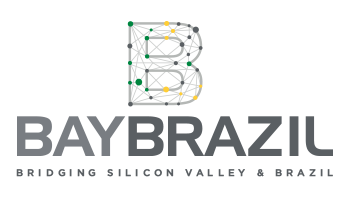Marcio Saito, President at Coffee Bean Technology
BayBrazil: What does Coffee Bean Technology do?
Marcio Saito: We develop Customer Relationship Management (CRM) software that helps companies to support their sales and marketing operations. Differently from the traditional tools, we leverage social technologies to both connect with customers via Social Media and promote internal collaboration among the several functional areas within the company. We are developing the CRM system for a more social world.
BayBrazil: What is the impact of Social Media in society?
Marcio Saito: Traditional media, such print, broadcast and early uses of the Internet, is primarily unidirectional and assumes an informed publisher and a passive audience with a limited selection of channels. Experts and professional curators and editors decide the content. I trust them to select balanced information to form my perspective of the world.
The digital medium is intrinsically open and multi-peer, all participants can share their ideas and participate in real time. It is “social” because I select content based primarily on the opinions of my personal connections and communities where I participate.
Media is not just a passive tool or technology, it defines the way we think. Traditional media has made us excessively “left brain” (analytical, introspective, linear, segmented, specialized). New Media is bringing our “right brain” back (intuitive, interactive, multi-tasking, holistic, generalist).
As we transition from a society dominated by the Print Medium to one that is molded by the Digital Medium, we will see ramifications that go beyond communication. Social organization, consumption patterns will change.
BayBrazil: How does that affect business?
Marcio Saito: The “Digital Generation” grew up with the Internet. They don’t read books, they search the web. They don’t accept hierarchy and can sift through huge amounts of information. These are the new consumers and they are also becoming decision makers in business and citizens. Companies will need to adapt to attract them as employees or to sell to them as consumers.
The Internet decreases the friction of collaboration and allows the expression of collective knowledge. We become less dependent on “expert knowledge”. The aggregation of peer recommendations is often more relevant and reliable that the opinion of a professional expert. That is the reason why you pick restaurants based on Yelp.com or recommendations from friends rather than look for a review in the newspaper or look up reference information on Wikipedia instead of going back to the Britannica.
Customers are empowered and in control. They share information and communicate with others and often know more about the product than the sales person. Companies no longer control the flow of information, they need to engage with customers and participate in the conversation.
BayBrazil: Where is it happening first?
Marcio Saito: Like the first wave of Internet innovation in the 1990s, adoption of Social Media is driven by individuals, not by businesses. The first companies to feel the effect where the ones with businesses that were more intrinsically connected to media or information brokering.
Publishing, music, news, travel reservations, and retail are all going through major adaptation, with the decline of the old (Newsweek, Blockbuster Video, local travel agency, Mervyn’s, etc) and the emergence of new players (News Blogs, Netflix, Travelocity, Amazon.com, etc).
Now, the shift is being felt in every other business. It usually starts in customer-facing functions (sales, marketing, customer service). But it affects the entire business.
Imagine you are the Marriott hotel. In the past you would detect customer service problems by reviewing customer satisfaction surveys at the end of each month. In the digital era, hotels must monitor posts mentioning their name in Twitter or Facebook, react to the problem and fix it before the guest leaves checks out and talk about it to a dozen friends. Reacting in real-time is the difference between negative or positive peer influence. It is the difference between businesses that survive or decline.
BayBrazil: How do you compare the use of social media in the U.S. versus Brazil?
Marcio Saito: Recent surveys and research indicate that the adoption of Mobile Technologies and Social Media is surprisingly strong in emerging markets. The explanation is simple: technology is less entrenched, so many users are skipping legacy technology.
There is anecdotal evidence that Brazilians are early and avid adopters of Social Media. Google launched the social networking service Orkut globally, but about half of the users are in Brazil. Brazilians are among the most active in Twitter, often dominating the “trending topics list”. Recently, during the World Cup, the international media (including the NYT) noted the strong presence of Brazilian users in the social sites.
I would not go as far as saying that Brazil is embracing social media faster or assuming “Brazilians are social people”, but Brazil is clearly adopting social media at least on par with developed countries and that has been catching the attention of industry analysts.
BayBrazil: How is it to be a Brazilian engineer in the Silicon Valley?
Marcio Saito: The “Brazilian” applies to me as a person living abroad, but nationality has not been a factor in my role as an Engineer. The Californian business culture is very open and that is one of the reasons for its success.
That said, in more than one occasion, I’ve helped to build engineering teams in Brazil working as part of global organizations, which is my way of “giving back”.
I moved here in 1993. At the time, one needed to be geographically close to the technology centers to participate in the community working on the innovation process. For computers and information technology, the Silicon Valley was the place to be.
One of the effects of the adoption of digital technology is that communities can now form independent of geographical proximity. With the shift of economic center of gravity towards the emerging markets, I would expect less reasons for someone to immigrate from Brazil to the US for business or professional reasons.








